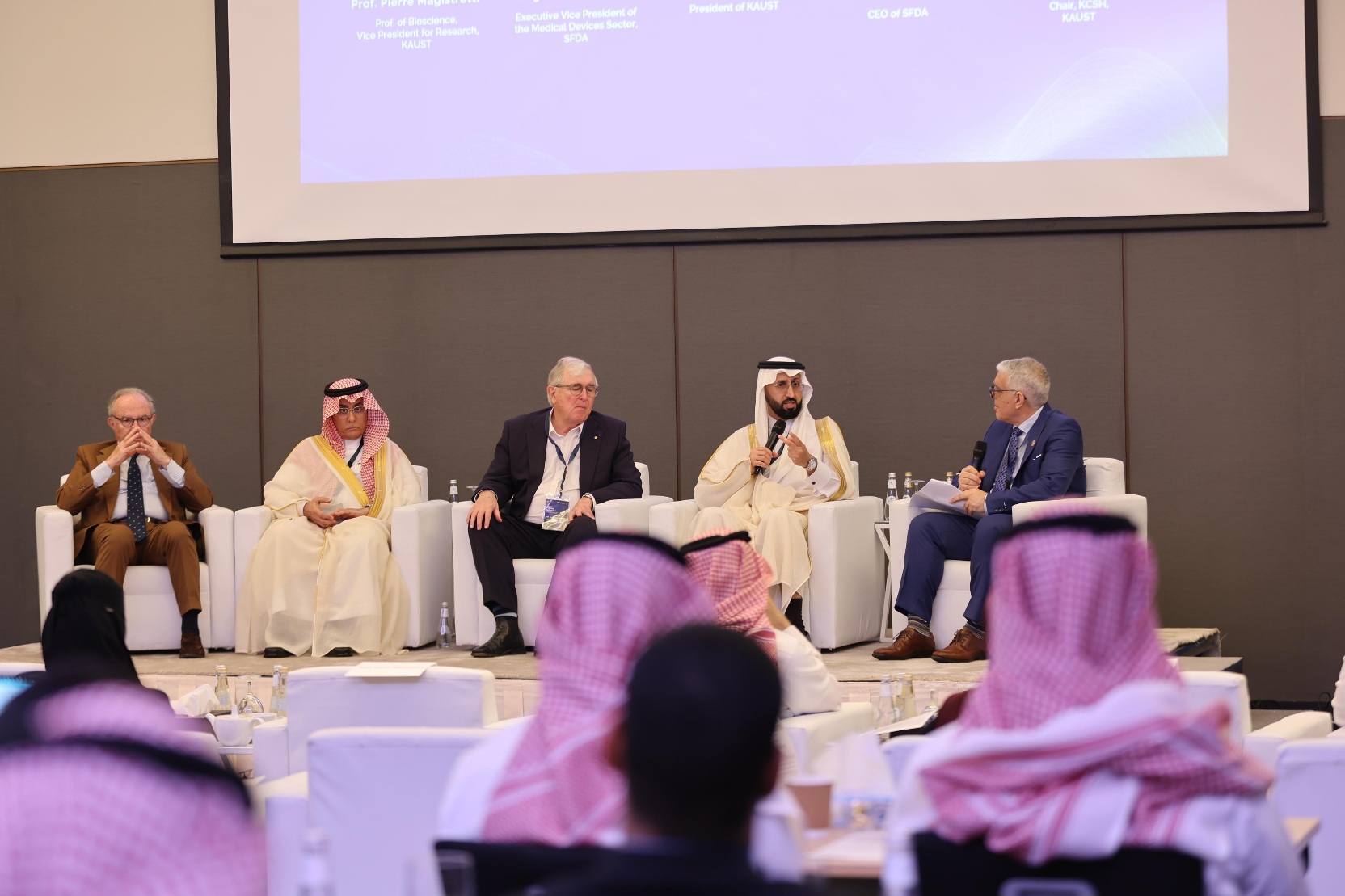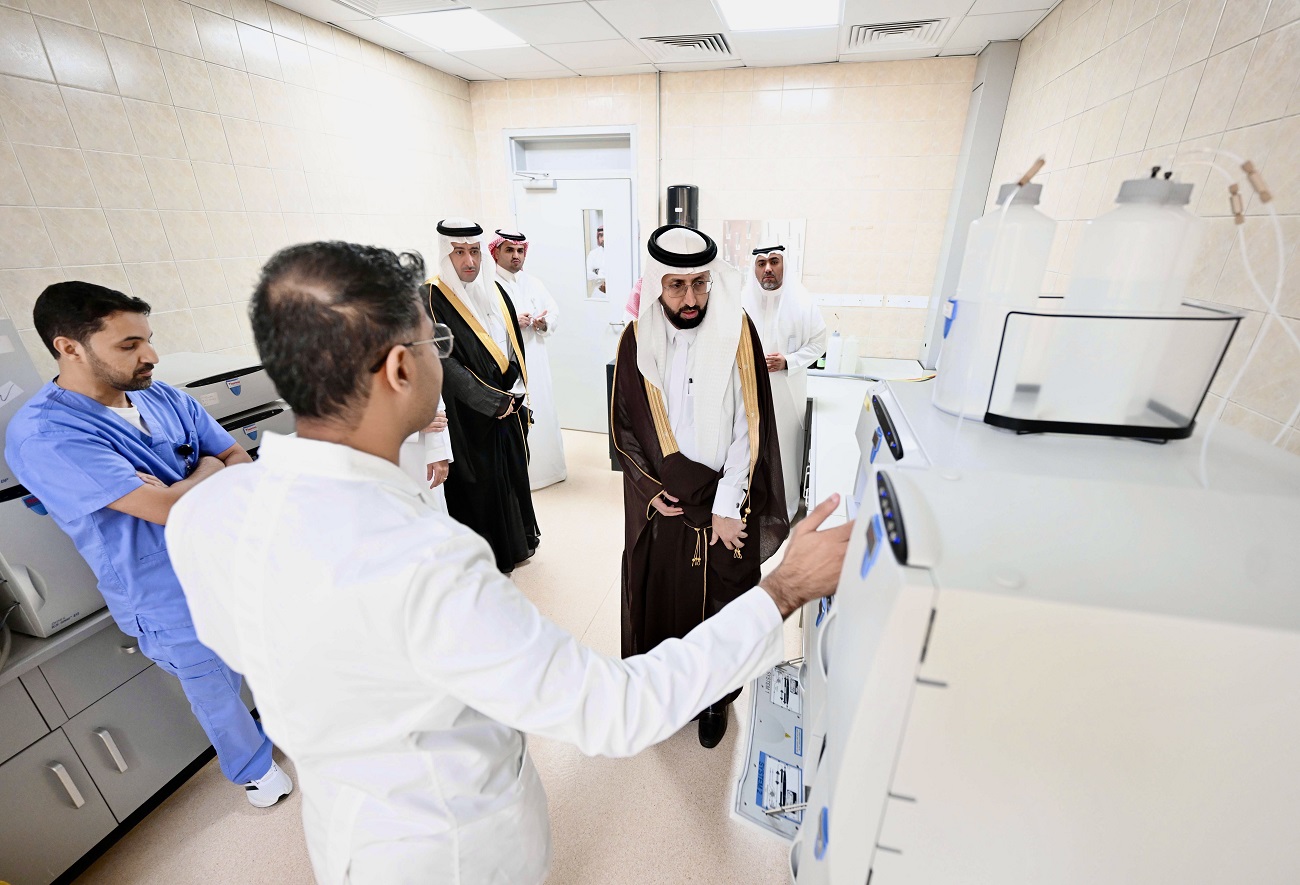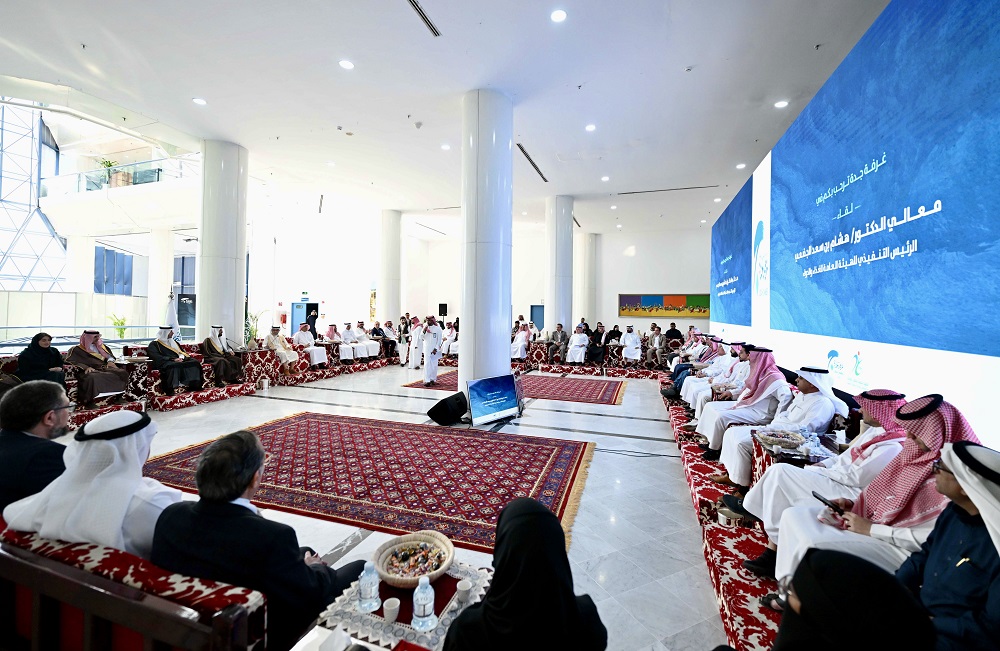KAUST and SFDA Hold Joint Workshop on the Future of Saudi Medical Technology
2025-01-26
Thuwal, Saudi Arabia, January 26, 2025 - The Saudi Food and Drug Authority (SFDA) and the Center of Excellence for Smart Health (KCSH) at King Abdullah University of Science and Technology (KAUST) hosted a workshop today, uniting prominent researchers, scientists, and officials to discuss the regulation and innovation of medical devices utilizing artificial intelligence (AI) and biotechnology.
The workshop featured a leadership discussion titled "The SFDA & KAUST Partnership: Leveraging Expertise to Accelerate Impact in the Health System." Participants included Dr. Hisham S. Aljadhey, the CEO of SFDA; Prof. Sir Edward Byrne, the President of KAUST; Eng. Ali Al-Dalaan, Executive Vice President of the Medical Devices Sector of SFDA; and Prof. Pierre Magistretti, Vice President for Research of KAUST. Moderated by Prof. Imed Gallouzi, Chair of KCSH at KAUST, the session explored current advancements in health technologies.
Dr. Aljadhey opened the workshop by highlighting the Kingdom of Saudi Arabia’s adoption of the National Biotechnology Strategy, a comprehensive initiative aimed at reinforcing its leadership in the sector and enhancing the quality of life across various domains, including medical products, medicines, medical devices, agriculture, food, and industrial applications.
He emphasized the SFDA's commitment to future-proofing its regulatory framework by adapting to rapid advancements in biotechnology and AI. This includes the establishment of a comprehensive regulatory framework for biotechnology and emerging technologies, as well as the creation of dedicated departments such as the Clinical Trials and Biotechnology Department and the Modern Technology and Digital Health Department. The SFDA also actively engages with international bodies to ensure it remains at the forefront of reviewing medical innovations.
Dr. Aljadhey underscored the critical role of collaborative engagement between the public and private sectors in realizing the objectives of the National Biotechnology Strategy. He noted that the SFDA's partnerships with the Ministry of Health, the Ministry of Investment, and academic institutions exemplify this principle, aimed at fostering innovation and exploring the applications of biotechnology and AI in medical devices synergistically.
"We are delighted to host this timely workshop," said Prof. Byrne, "showcasing cutting-edge medical devices and technologies developed by our faculty at KAUST. It underscores the SFDA's crucial role in driving innovation within the sector, and we believe collaborations like this will greatly benefit the Kingdom."
The workshop highlighted collaborative efforts, with the SFDA presenting its "Innovative Medical Devices and Supplies Track" initiative to boost local manufacturing and innovation, while KAUST shared insights from its COVID-19 PCR diagnostic kit development, as well as research on sensors, next-generation diagnostics, and wearable biosensors.
A dedicated session on artificial intelligence explored several key areas, including the SkinGPT-4 skin diagnosis tool launched in 2023, the development and application of AI-powered medical devices, the training of these devices using patient data in Saudi hospitals, and recent progress in biotechnology-based medical technology.








